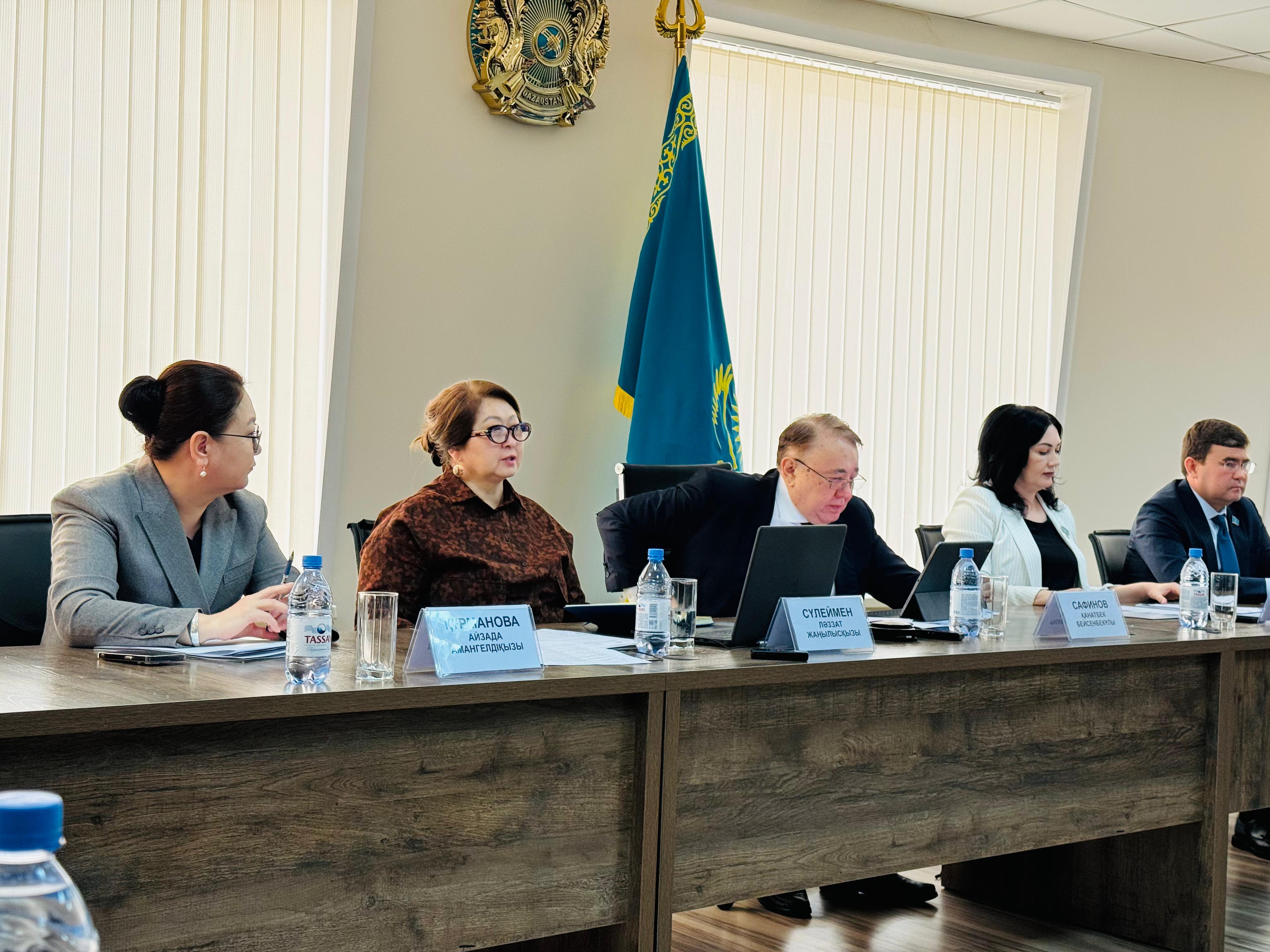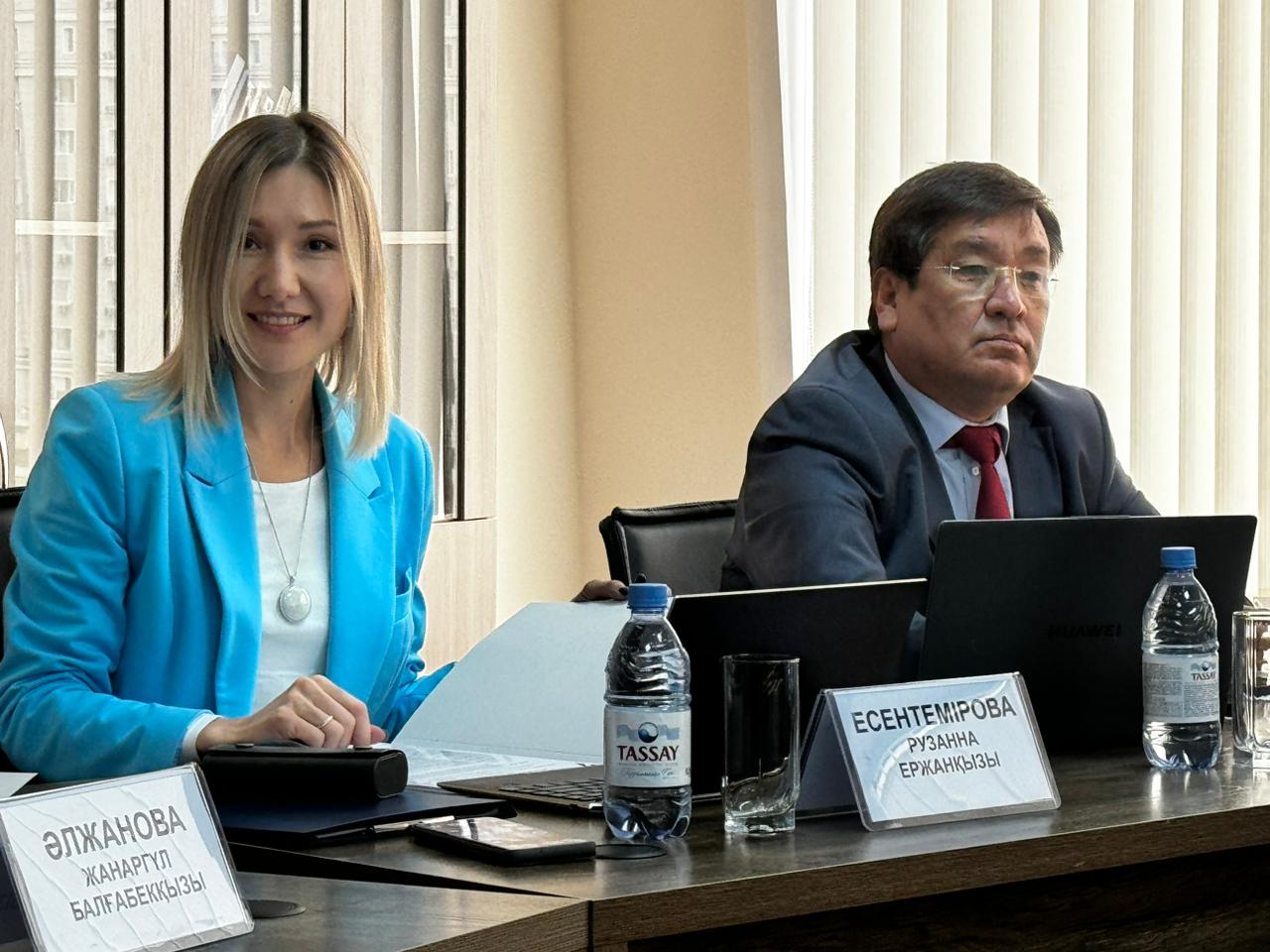On October 11, 2024, an international round table on the topic "Issues of mediation development in the Republic of Kazakhstan" was held in Astana at the Institute of Parliamentarism of the UMTO UDP of the Republic of Kazakhstan.
The topic of mediation development in Kazakhstan is a very relevant issue, especially in the context of the efforts of legal culture and the search for alternative ways to resolve conflicts. Such round tables allow to gather experts, practitioners and government representatives to discuss important issues in the field of mediation.
The event was attended by international-class mediators, mediation coaches, practicing mediators, deputies of the Mazhilis of the Parliament of the Republic of Kazakhstan, Vice-Minister of Culture and Information of the Republic of Kazakhstan, judges, lawyers and representatives of the Assembly of People of Kazakhstan.
Presentations were made by :
• Zhandilda Azhigalievich Zhakupov, President of the NGO "International Human Rights Center".
• Safinov Kanatbek Beisenbekovich, Director of the Institute of Parliamentarism.
• Natalia Grigorievna Dementieva, Deputy of the Mazhilis of the Parliament of the Republic of Kazakhstan.
• Kurmanava Aizada Amangeldinovna, Vice Minister of Culture and Information of the Republic of Kazakhstan.
• Zinasheva Leila Satygalievna, Chairman of the Juvenile Court in Astana.
• Sergeeva Alina, international IMI certified mediator and representative of the Ukrainian National Section.
• Belskaya Irina Alexandrovna, mediator (organizer of the practice of justice in Belarus)
• Raisova Balgul Amangeldinovna, lawyer of the Bar Association.
• Esentemirova Ruzanna Yerzhanovna, Executive Director of the NGO "International Bureau of mediation"
The round table discussed the latest changes in laws and regulations that may affect the further development of mediation in Kazakhstan. The issues of training professional mediators, improving their skills and ensuring work standards were discussed. Key issues related to the development of mediation in Kazakhstan until 2030 were discussed. Special attention was paid to the concept of further improvement of the mediation institute, including a number of measures aimed at improving legislation, as well as the introduction of information meetings and the exclusion of the role of judges as mediators.
One of the issues discussed was the organization of conciliation offices at the courts and the order of their work. The head of the NGO "International Human Rights Center" Zhandilda Zhakupov made a proposal to transfer the authority to develop mediation to the Ministry of Justice as the authorized body in this area.
He also made proposals on the need to reduce the tax burden for mediators and on the legislative consolidation of mediation by professional mediators with the participation of state bodies, which is currently possible only by a judge during a trial within the framework of the Administrative Procedural Code of the Republic of Kazakhstan.
Zhakupov presented arguments based on international experience. He noted that in countries such as Azerbaijan, Uzbekistan, Kyrgyzstan, the USA, Turkey and Germany, the Ministry of Justice is responsible for the development of mediation, whereas in Kazakhstan these functions are assigned to the Ministry of Culture and Information. A decrease in the number of mediator organizations was also noted: out of almost 100 such organizations in Kazakhstan, only slightly more than 10 have transferred to the status of self-regulatory organizations (SROs), which causes certain difficulties and indicates the need for structural changes.
Zhakupov also gave examples of successful international events organized within the framework of the Singapore Convention starting in 2019, emphasizing the need for active participation and support from the state to improve the mediation system and its compliance with international standards.
Ms. Esentemirova R. presented a draft Mediation Concept at the round table, which will be posted for public discussion and suggestions in the near future.
Through information channels and educational initiatives, mediation is becoming an increasingly well-known and acceptable way to resolve conflicts for the population. It can only be noted that mediation in Kazakhstan is rapidly growing upwards, contributing to a decrease in the level of conflict in society.
.jpeg)





